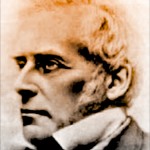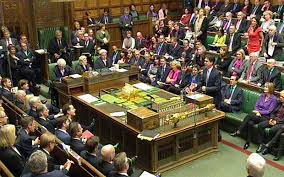I must apologise for the lack of activity on ADOSS during the past few weeks. Many readers will know the reason for this. I now have a backlog of articles and subjects, and a desire to catch up if the Lord allows me to.
Latitudinarianism is a word which has popped up recently among the Christians with whom I break bread. When I saw the word, I had to look it up in the dictionary. Wikipedia[1] describes Latitudinarian as ‘a pejorative (contemptible) term applied to a group of 16th-century English theologians who believed in conforming to official Church of England practices but who felt that matters of doctrine, liturgical practice, and ecclesiastical organization were of relatively little importance’. That is what they claimed. However, Richard Hooker, one of the main 16th century latitudinarians taught[2]
- Our conduct ought to be governed by scripture
- Scripture shows how leadership should operate in the church
- English Church is corrupted by Roman Catholic orders, rites etc.
- A law which does not allow lay elders is corrupt
- There should be no such position as a bishop
None of us should have any problems here. There may be some things that this man held that we might not agree with now, but it seems as if the accusation was used by the church leadership to challenge anybody who did not accede implicitly to their authority.
I decided to look it up in J N Darby’s writings. It is referred to extensively in one part of Darby’s long letter to James Kelley (1839), who criticised Darby’s schismatic action in leaving the Established Church. Kelley accused Darby[3] of latitudinarianism because of his refusal to embrace an organised church into which one could be baptised, and the lack of outward unity in accepting persons from Anglican, Baptist and even Quaker backgrounds.
Mr Darby contested that from whatever background persons had come from, they should not be excluded if they accepted the gospel fully, and were desirous of leaving organised sectarian religion. He quoted the scripture ‘Let us therefore, as many as be perfect, be thus minded: and if in any thing ye be otherwise minded, God shall reveal even this unto you. Nevertheless, whereto we have already attained, let us walk by the same rule, let us mind the same thing (Phil 3:15-16).
Darby then criticised the Established Church itself of latitudinarianism in its association with the world in relation to the then modern thinking. He cited supporting atheism and infidelity in schools as well as the careless admission of many unconverted persons to communion. We could add many other things to the list now. At the same time, there were narrow sectarianism of rules and forms, persecuting persons who do not conform – accusing them of, yes, latitudinarianism.
What was needed was balance. Elsewhere, I found a reading in Edinburgh, J N Darby on The Camp and the Body of Christ (Notes and Jottings p 37).
A person who was seeking fellowship should have the Spirit of Christ and be walking according to it. There is liberty to meet outside of the recognised denominations (the worldly camp[4]). For true Christian fellowship we need to lay hold of the fact that we have a heavenly calling, and cannot have part with clerical systems.
When we meet people we go as far as we can with them, but we cannot have part in their system. If we meet a clergyman we converse with him as a Christian, not as a clergyman. In short, keep your feet in the narrow way, and your heart as large as you can. It is of no use trying to make fellowship if it is not real; you can’t shake oil and water together: they will soon separate again.
I recommend your reading the whole note of the reading – it is not long.
Greetings in our Lord
Sosthenes
[1] See Wikipedia article on ‘Latitudinarian’
[2] Hooker – Of the Lawes of Ecclesiastical Politie 1594
[3] The claims of the Church of England considered; being the close of a correspondence between the Rev. James Kelly, of Stillogan, Ireland, and J. N. Darby. Collected Writings Vol 14 (Ecclesiastical 3) pp 176-242
[4] Technically the camp refers to Israel. We can apply it to professing earthly Christendom.



 J N Darby wrote a short paper ‘Progress of Democratic Power, and its Effects on the Moral State of England*’ sometime after the Reform Act of 1832. It is interesting to look back and to see how perceptive that servant of God was maybe 170 years ago. Some things have certainly come true. Other things he did not directly foresee.
J N Darby wrote a short paper ‘Progress of Democratic Power, and its Effects on the Moral State of England*’ sometime after the Reform Act of 1832. It is interesting to look back and to see how perceptive that servant of God was maybe 170 years ago. Some things have certainly come true. Other things he did not directly foresee.